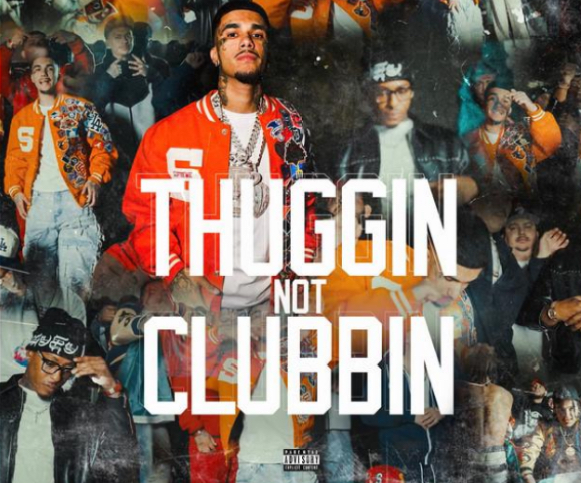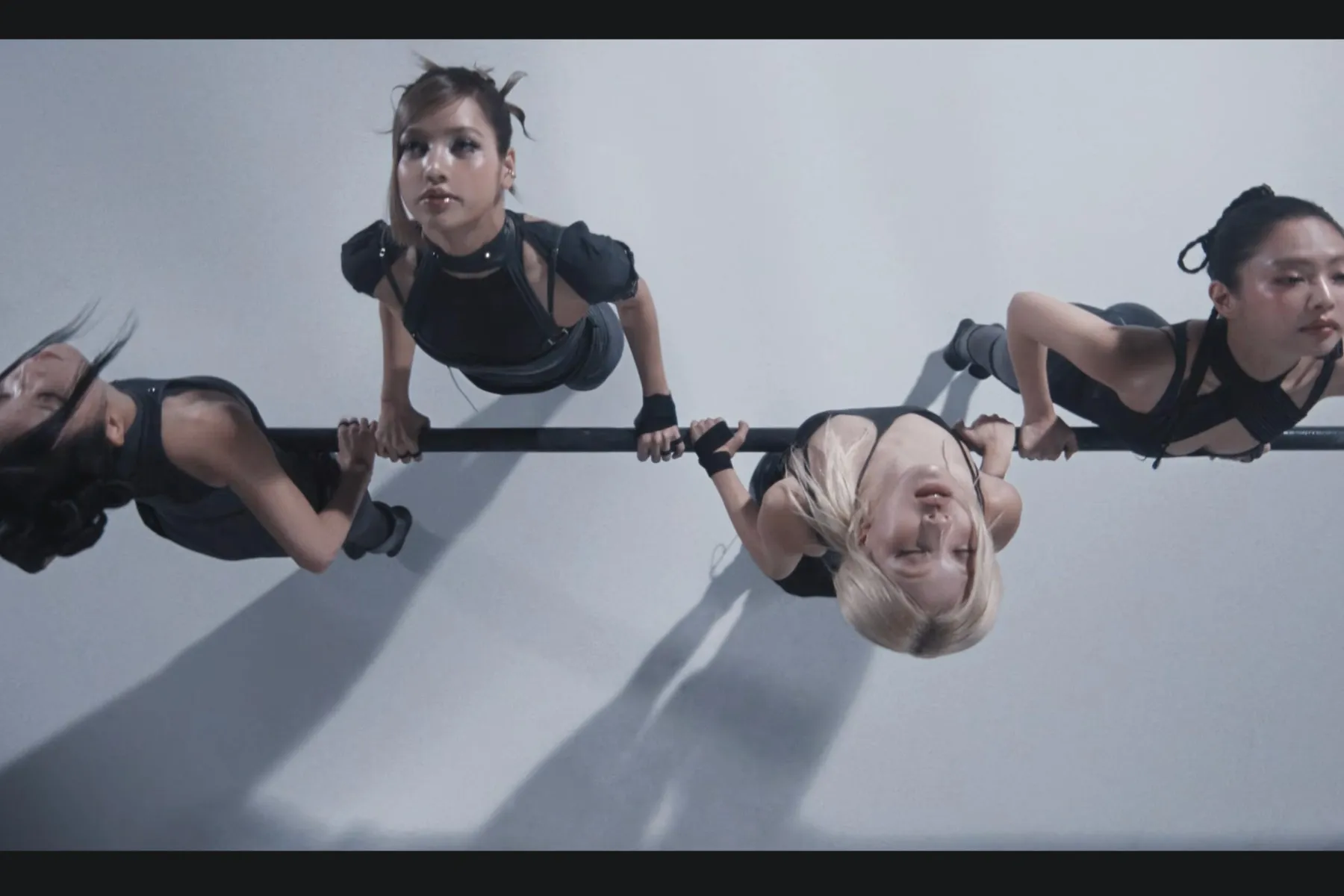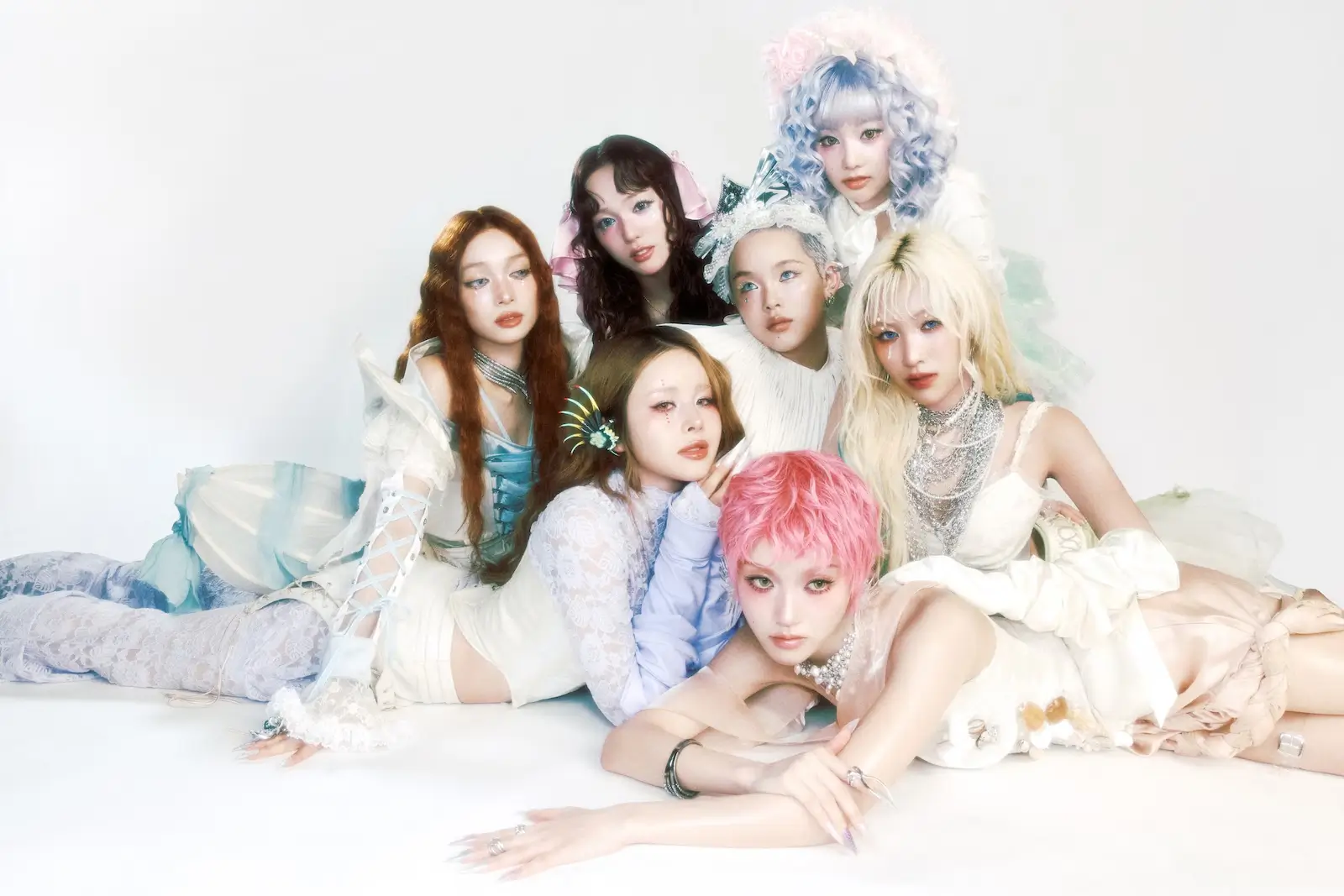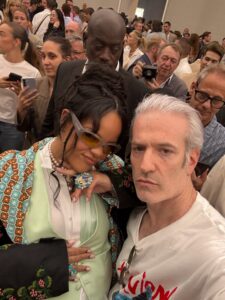In a West Coast rap scene known for its regional pride, generational weight, and street-level authenticity, a new anthem has emerged that doesn’t aim for chart supremacy or club rotation—it aims for documentation. Thuggin Not Clubbin, a movement flow effort between rising LA rapper Peysoh and Crenshaw’s own AzChike, is not just a song—it’s a thesis. Sparse, paranoid, and unshaken, the track reads less like a summer hit and more like a dispatch from the frontline of urban survival. This is music that doesn’t look for escape; it speaks for those who never had the option.
While mainstream hip-hop continues its romance with club bangers and synth-driven vibes, Thuggin Not Clubbin retreats from glamour. It replaces bottles with back alleys, strobe lights with corner-store fluorescence, VIP lists with court dates. For Peysoh and AzChike, the club is not where stories are made. It’s where fantasies are played out. Real life, and real consequences, happen on the block—and they bring that reality to the mic with steel-booted precision.
Peysoh: The Chronicler of Pain and Pride
Born in the heart of South Central and raised amidst the shadow of incarceration, Peysoh has quickly become a voice for the unsheltered soul of the city. Known for his 2022 breakout Dangerous, and the Ghetto Journal series that earned him a dedicated following, Peysoh doesn’t rap to impress—he raps to remember. His lyrics often sound like diary entries read under duress: raw, cold, stripped of performative edge. But there’s elegance in that restraint.
In Thuggin Not Clubbin, Peysoh’s verse plays like a confessional booth covered in barbed wire. There’s tension in every line—not the kind that builds toward a drop, but the kind that builds in silence, in stares, in surveillance. He speaks of daily rituals not with bravado but with weary observation: parole checks, loyalty tests, silence over snitching, mourning over celebration. “I got homies that ain’t make it to 21 / So what I look like throwin’ money in a club?”
The delivery is flat but intentional. It’s a refusal to glamorize. A refusal to forget.
AzChike: Chaos, Charisma, and Crenshaw’s Crown
Where Peysoh carries the weight of narrative, AzChike brings the kinetic force. A product of the same lineage that gave rise to artists like Dom Kennedy and Nipsey Hussle, AzChike has built a reputation on high-energy performances and hook-heavy precision. But in Thuggin Not Clubbin, he reins it in—just enough to deliver menace without hysteria.
AzChike’s presence on the track is less about punchlines and more about pulse. His voice cuts through the beat with serrated clarity. He’s not rapping from a distance—he’s shoulder to shoulder with you, maybe eyeing the door. His verse, littered with street code and survival cues, doesn’t romanticize the hustle. It renders it with brutal exactitude. “Clubbin gets you lined up / Thuggin get you time, bruh.” That’s the line that hits like a warning sticker on a parole officer’s desk.
And yet, even in its cynicism, there’s charisma. AzChike never sounds defeated. He sounds awake. Vigilant. Alive in a way the club won’t allow.
The Production: Hollowed Out and Heavy
The beat on Thuggin Not Clubbin is a masterclass in minimalism. Produced with an ear toward paranoia, the instrumental strips down to skeletal essentials: a low-slung 808, brittle snares, and an eerie, looping melody that feels like a slowed-down siren or a warped nursery rhyme. There’s space in the beat—too much space, intentionally. The silence between kicks becomes a character in itself. It mimics the real-life pacing of street survival: moments of quiet tension, then sudden movement.
This kind of production isn’t made for TikTok choreography or high-volume playback in luxury cars. It’s made for headphone solitude. It lives in alleyways, on street corners, in cracked iPhones with jailbroken apps. It’s not meant to entertain. It’s meant to last.
Aesthetic Philosophy: Document Don’t Decorate
What’s most striking about Thuggin Not Clubbin is its rejection of the club as an aspirational space. In much of hip-hop, the club has symbolized arrival—wealth, recognition, access. But for Peysoh and AzChike, the club represents an illusion. A soft target. A distraction.
Their refusal to embrace club culture is a refusal to entertain the myth of safety in public spectacle. Clubs are lit up for celebration—but they’re also lit up in retaliation. The track suggests that real success lies not in being seen, but in surviving unseen.
This isn’t anti-joy. It’s anti-fantasy. In their world, throwing ones in a nightclub isn’t rebellion—it’s negligence. “We don’t do sections, we do sections of the block,” Peysoh spits, cutting down the very architecture of club privilege. There’s no velvet rope here—just police tape.
Cultural Reverberation: Street Gospel for a Fractured West Coast
The West Coast rap landscape is fracturing in fascinating ways. You have the mainstream machine of Mustard and Blxst; the gritty lyricism of Reason and G Perico; the experimental zones of DUCKWRTH and JPEGMAFIA. Thuggin Not Clubbin carves out a new, narrow lane—closer to a street gospel, informed by trauma but delivered with purpose.
In many ways, the song harks back to the DNA of West Coast hip-hop: not the G-Funk gloss, but the sobering tapes of C-Bo, 03 Greedo, and DJ Quik’s Safe + Sound. It values geography. It names corners. It mourns losses. It warns the listener: this isn’t music for the dancefloor. This is music for the hallway. The holding cell. The ride home with the seat pushed back.
Peysoh and AzChike aren’t concerned with mass appeal—they’re concerned with accuracy. And in that fidelity to their lived experience, they offer something more potent than entertainment: truth.
Impression
Thuggin Not Clubbin isn’t here to trend. It’s here to testify. In a climate of streaming-friendly hooks and choreographed flexing, Peysoh and AzChike deliver something with marrow. The song is a thesis on displacement, memory, and the necessity of vigilance. It doesn’t need a remix. It doesn’t need a dance. It needs to be heard.
And for those who live where it’s set—for those who know the difference between clubbing and thuggin not as concepts but as consequences—it already is.
No comments yet.








